English IELTS Exam Preparation, The writing component
English IELTS exam preparation
The IELTS writing test takes one hour. In this time you are required to complete two tasks.
TASK ONE
Task One is a report based on some graphic information provided on the question paper. With few exceptions, the graphic information will come in one of five forms – a line graph, bar graph, pie chart, table or diagram illustrating a process.
You are required to describe the information or the process in a report of 150 words. This task should be completed in 20 minutes. It is important that you are familiar with the language appropriate to report writing generally and to each of the five types of report.
TASK TWO
Task two is an essay based on a topic given on the question paper. You should write at least 250 words in 40 minutes. It is important that you keep within the advised time limits as Task Two carries more weight in your final band score than Task One. Remember that illegible handwriting will reduce your final score.
English IELTS exam Preparation
An important preparation for the IELTS test is to find out about the structure of the test. What are the sections of the test? Which one comes first? Second? How much time is allowed for each section? How many questions are there? How long must I speak? There are simple questions to answer, but important. Once you are familiar with the test format, you will be more relaxed. You will be able to focus on answering questions well, rather than worrying about how many questions there are, or how much time is left. You will find the answers to these questions in this section.
English for IELTS exam Preparation The speaking component
The IELTS speaking test takes around 15 minutes and is in the form of an interview. The interview will most probably seem like a friendly conversation which typically covers some aspects of your past, present and future situations. The interviewer will direct the conversation through questions which mostly focus on you and your opinions.English for IELTS exam preparation
English IELTS Exam Preparation interview has four main sections:
- some general questions about yourself
- a discussion of topics of general interest
- a role play
- a discussion of your future plans and a conclusion
It is important that you relax and speak as confidently as you can. Candidates who are difficult to draw into the conversation may not achieve their potential band score simply because they haven’t been able to demonstrate the level of language they are capable of producing.
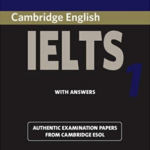
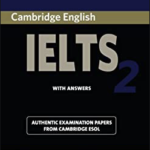
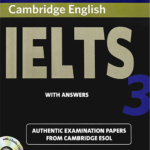
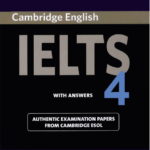
English IELTS Exam Preparation reading Component
The IELTS reading test takes one hour. In this time you are required to read three texts of between 500 and 900 words each. The texts and questions increase in difficulty. There will be around 40 questions to answer and record on the answer sheet within the 60 minutes. English IELTS exam preparation
Most students come out of the reading test feeling that there wasn’t enough time to complete the exam paper. For this reason it is very important that you take a number of timed practice reading tests before the actual exam day to develop the skills of skimming and scanning and other timesaving strategies.
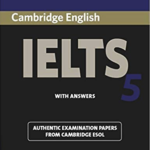
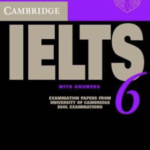
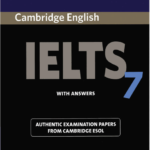
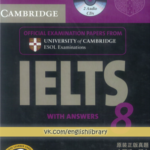
English IELTS Exam Preparation The listening component
Task description
The IELTS listening test takes approximately 30 minutes. The listening material is recorded on a cassette tape which you will hear only once. There are four sections in the listening test presented in order of increasing difficulty.
The first two sections are on topics of general interest such as a report of a lost bag or an introduction to a public facility. Section one will be in the form of a dialogue, section two will be a monologue.
Sections three and four will have an education or training focus. There will be a lecture and a discussion between two and four people.
As you listen you should write your answers on the question booklet. At the end of the recorded material you will be given ten minutes to copy your answers onto the answer sheet.
Most candidates come out of the listening test not feeling very confident of their answers after listening to the recording only once.
For this reason it is very important that you take a number of timed practice listening tests before the actual exam day to become familiar with the style of questions asked, the speed of the speech and to develop the skill of recording your answers as you listen. English IELTS exam preparation
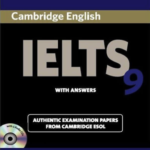
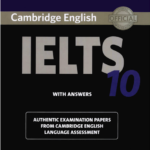
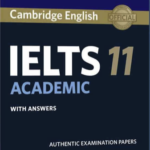
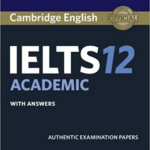
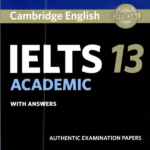
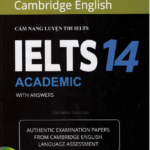
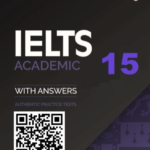
English IELTS Exam Preparation vs CAE Preperation
Deciding which English language exam is right for you can be a difficult process. While some may be better for academic purposes, others may have benefits when applying for jobs. In order to choose between Cambridge C1 Advanced (formerly and better known by CAE) and ISELT, it’s important to weigh up the key differences between the two exams. In this blog, we’ll compare the two exams in terms of structure, grading, and more so you can make the right decision.
Comparing CAE and IELTS
1. Exam Length
The exams differ in length, which is an important factor to consider if you are someone who finds exams challenging. IELTS lasts for 2 hours 45 minutes, meanwhile, CAE is about 4 hours long.
2. Validity
IELTS is only valid for 2 years, whereas CAE doesn’t have an expiration date. This may be important if you’re taking the exams with future career choices in mind.
3. Exam structure
The Cambridge Advanced Exam tests all five language skills and has a dedicated grammar part of the exam (referred to as Use of English). It is structured as follows:
- Part 1: Grammar (Use of English) and Reading (90 minutes)
- Part 2: Writing (90 minutes)
- Part 3: Listening (40 minutes)
- Part 4: Speaking (15 minutes)
Meanwhile, the IELTS is made up of four parts, with differing Reading and Writing depending on whether you are taking the Academic or General Training pathway:
- Part 1: Listening (30 minutes)
- Part 2: Academic or General Training Reading (60 minutes)
- Part 3: Academic or General Training Writing (60 minutes)
- Part 4: Speaking (11-14 minutes)
4. Grading
Another key difference between the two exams is the way they are graded. For example, for IELTS your results are given on a scale from 4.0 to 8.9, meanwhile, the maximum score for Cambridge exams is 200-210.
Which is more difficult?
The topics discussed in the CAE (Cambridge C1 Advanced) Reading and Writing are generally more varied, which can make the exam more difficult if your vocabulary is limited. Writing tasks in the CAE is also more varied, meaning you will have to learn a variety of writing styles that you might find more difficult. The benefit of taking IELTS for academic purposes is that all the tasks revolve around academia, which might be an easier option for university Ultimately, both are rigorous exams of similar difficulty.
CAE vs IELTS: Which is better?
There is no way of saying whether one exam is objectively better or worse than the other as both serve different purposes. One way to find out which exam is better for you is to consider what you would like to achieve with the exam work retroactively. Do you hope to migrate to a different country? Is a certain exam required in order to gain a VISA for that nation? These are all questions you need to ask yourself when choosing between CAE and IELTS.
For work
Around mainland Europe, you will often need to prove you have at least B2-level English in order to find employment. For this reason, many employers will ask for the B2 First (FCE) exam or Cambridge C1 Exam. In order to work in the UK, however, you may need IELTS in order to apply for a UK VISA to work in the UK.
For studying in the UK
While both exams are accepted by most universities, in the United Kingdom many universities will ask for the Academic IELTS exam taken in a SELT secured centre. In order to apply for a Tier 4 Student Visa to study a bachelor or postgraduate degree at a Tier 4 Sponsor university, students are required to meet the English language level set by that institution. Currently, all British universities and colleges accept IELTS results. Tier 4 Student Visa applicants can apply to the UK universities in this list from the British government with an IELTS result from more than 1,600 IELTS test locations worldwide. Find out more about taking IELTS for UKVI.












